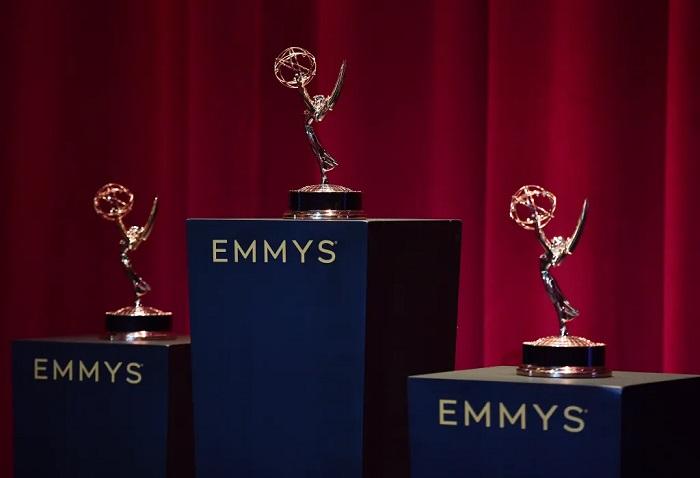Have the Primetime Emmy Awards lost relevance?

The Primetime Emmy Awards have long been considered one of the most prestigious honors in television. For decades, winning an Emmy symbolized recognition from the industry and a stamp of artistic excellence. But in recent years, their cultural importance has been questioned. Viewers have begun to ask if the Emmys still hold the same value or if they are losing touch with modern audiences.
The shifting media landscape, changing viewing habits, and a rapidly diversifying content market have all impacted the perception of the Emmys. While some still see them as the gold standard of television achievement, others believe their influence is fading.
The history and significance of the Primetime Emmy Awards
Origins and early prestige
-
The Primetime Emmy Awards began in 1949 as a way to honor excellence in television production.
-
In the early years, television was a limited medium, and the awards helped set benchmarks for quality.
-
For decades, the ceremony was a cultural event that united audiences around shared TV experiences.
Peak cultural influence
-
By the late 20th century, the Emmys were considered must-watch television.
-
Nominations and wins could transform careers and cement a show’s legacy.
-
The awards created annual talking points in households, media, and the entertainment industry.
Reasons the Emmys are losing cultural traction
Oversaturation of content
-
With the rise of streaming services, the number of shows eligible for the Primetime Emmy Awards has exploded.
-
Audiences now face a massive content overload, making it harder for any single winner to dominate the cultural conversation.
-
Smaller niche shows can win but remain largely unseen by the general public.
Declining live viewership
-
Ratings for the Emmy telecast have been dropping steadily over the last decade.
-
Viewers increasingly rely on social media clips and next-day coverage rather than watching the ceremony live.
-
Younger demographics often prioritize on-demand content over traditional live broadcasts.
Industry and audience disconnect
-
The Emmys sometimes recognize critically acclaimed shows that have limited mainstream appeal.
-
Some popular series with huge fan followings are often ignored in major categories.
-
This gap between critical recognition and audience favorites fuels debates about relevance.
Changing role of television awards in a digital era
Shift in how audiences consume recognition
-
Social media now amplifies moments instantly, overshadowing the need for an hours-long televised ceremony.
-
Viral content can make a show famous faster than an award win.
-
Viewers are more influenced by peer recommendations and streaming algorithms than by official industry accolades.
Global competition for attention
-
International productions and global streaming platforms have expanded the playing field.
-
The Primetime Emmy Awards were once the ultimate symbol of TV success in the United States, but now prestige is spread across many award systems worldwide.
-
Global audiences often celebrate shows that are not even eligible for Emmys.
Arguments in favor of the Emmys’ continued importance
Recognition by peers
-
Emmy wins are determined by industry professionals, giving them weight as peer acknowledgment.
-
Awards can help smaller or innovative shows gain funding and longevity.
-
An Emmy title can still be a career milestone for actors, writers, and directors.
Industry marketing power
-
Emmy wins are powerful marketing tools for networks and streaming services.
-
Promotions tied to “Emmy Award-winning” status can boost viewership and credibility.
-
Networks still invest heavily in Emmy campaigns because the prestige remains valuable in certain circles.
How the Emmys can stay relevant
Modernizing the broadcast
-
Incorporating interactive elements and live audience engagement could draw younger viewers.
-
Shorter acceptance speeches and more dynamic presentation styles may improve pacing.
-
Integrating real-time social media reactions could bridge the gap between the ceremony and online audiences.
Expanding inclusivity and recognition
-
Recognizing more diverse genres and international content could reflect today’s global viewing reality.
-
Adding categories for emerging formats such as web series or interactive television could keep the awards current.
-
Greater transparency in voting and nomination processes could improve public trust.
The emotional factor
Nostalgia and tradition
-
For many industry veterans, the Emmys still carry deep sentimental value.
-
The history of the awards is tied to landmark television moments that shaped culture.
-
Longtime fans still look forward to celebrating their favorite shows each year.
Celebrating artistry
-
Even in a crowded media space, the Primetime Emmy Awards spotlight the artistry behind television.
-
They provide a rare occasion where writing, directing, acting, and technical excellence are all recognized together.
-
This celebration of craftsmanship is still appreciated by those who value the medium deeply.
Conclusion
The question of whether the Primetime Emmy Awards have lost relevance is complex. On one hand, declining ratings, fragmented audiences, and an explosion of content have diminished their role as a unifying cultural event. On the other hand, within the television industry, the Emmys still carry weight as peer recognition and marketing leverage.
The future of the Emmys will depend on their ability to adapt to new audience habits and embrace the evolving global television landscape. If they can balance tradition with innovation, they may retain their prestige while regaining broader public interest. But if they fail to evolve, they risk becoming an event appreciated mainly by insiders rather than the general viewing public.
- Art
- Causes
- Crafts
- Dance
- Drinks
- Film
- Fitness
- Food
- Jogos
- Gardening
- Health
- Início
- Literature
- Music
- Networking
- Outro
- Party
- Religion
- Shopping
- Sports
- Theater
- Wellness


